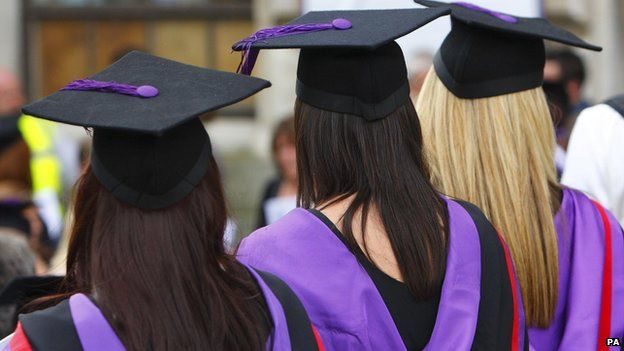Ex-MI5 head warns of anti-terror plan for universities
- Published

Government plans to give universities a legal duty to prevent people being radicalised could impact upon freedom of speech, a former MI5 head has said.
Baroness Manningham-Buller said plans to make the Prevent counter-terrorism strategy a statutory obligation risked banning "non-violent extremists" from speaking at universities.
She said such opinions need to be "exposed, challenged and countered".
Home Office minister Lord Bates said he would consider the matter further.
At present, colleges and other bodies take part in the government's Prevent strategy voluntarily.
The Home Office says the flagship strategy relies upon the co-operation of organisations to be effective, but says co-operation is "not consistent across the country".
Passing legislation to make the delivery of the strategy a legal requirement for some organisations would "improve the standard of work on the Prevent programme across the country", it said.
The proposed Counter-Terrorism and Security Bill would give legal duties to bodies such as local authorities and universities.
But speaking during a House of Lords debate on the bill, Baroness Manningham-Buller - who was head of the security service at the time of the 7/7 London bombings in 2005 - told peers the plan risked banning non-violent extremists from speaking at universities.
"It is a profound irony in seeking to protect our values against this pernicious ideology we are trying to bar views too vaguely described as non-violent extremism, which falls short of incitement to violence or to racial or ethnic hatred or the other legislative constraints on universities," the independent peer said.
She said offensive and insulting opinions about the rule of law, democracy, civil society, and women's rights needed to be exposed, challenged and countered.
Other peers also voiced their concerns during the debate.
Liberal Democrat peer, Lord Macdonald of River Glaven - a former director of public prosecutions - said: "An institution that shouts down a speaker with unpopular views or bans arguments that cause offence is not really a university at all, it is an intellectual closed shop, and that is something very different and much less attractive."
'Strength of feeling'
Labour peer Baroness Kennedy of The Shaws - a leading QC and principal of Mansfield College, Oxford - said freedom of speech would be undermined by the legislation.
"To interfere with or to create a chilling effect is really something we should step back from," she said.
Tory peer, Lord Renfrew of Kaimsthorn - a former master of Jesus College, Cambridge - said free speech should be constrained "as little as possible" in universities.
"Very high principles are at stake here and at risk," he said.
Lord Bates said the government regarded it as important for universities to be included in the Bill.
Between 1999 and 2009, around 30% of people convicted of al-Qaeda-related terrorism offences had attended a higher education institution, he said.
"Freedom of speech is not an absolute. The duty is to secure freedom of speech within the law," he said
But he told peers he understood "the trepidations of many in this House and I have heard the strength of feeling on this matter".
He said he would discuss the proposal with ministerial colleagues "in order to identify whether it would be possible to provide some additional comfort to peers and to the education sector itself".
- Published12 January 2015
- Published26 August 2014